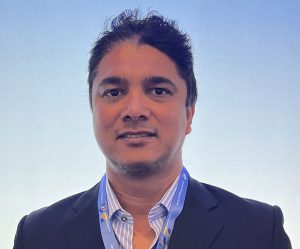Srimal Samansiri

Facility Development Manager / Researcher r.s.p.samansiri1@salford.ac.uk
Biography
Dr. Srimal Samansiri has over 15 years of industrial experience in Disaster Risk Management, especially in information management and geospatial technologies.
He worked for the United Nations Residents Coordinators Office in Malawi, Africa, in 2018. He established and managed the UNINFO, the planning, monitoring and reporting system to track how the UN system at the country level supports governments to deliver on the Sustainable Development Goals and the 2030 Agenda. Prior to joining the UN, he worked as Assistant Director of Research and Development in the Disaster Management Centre, Government of Sri Lanka, for over 10 years and at UNOCHA for 02 years. He has industrial experience in promoting space technology for Disaster Risk Management applications. He has engaged in several national projects such as developing “National Hazard and Risk Assessments”, development of “National Spatial Data Infrastructure”, in Sri Lanka, managing disaster information management system (www.desinventar.lk), initiating national disaster risk information system (riskinfo.lk).
Research interests
- Early Warning Systems / Disaster information systems
- Hazard and risk assessment
- Satellite remote sensing in disaster risk management
- E-Government
- Data governance
Qualifications and memberships
- PhD in Disaster Management (2023), University of Salford, UK
- Master of Public Administration in eGovernment (2019), Postgraduate Institute of Management (PIM), University of Sri Jayawardenenpura, Sri Lanka
- PG Diploma in eGovernment (2013), Postgraduate Institute of Management (PIM), University of Sri Jayawardenenpura, Sri Lanka
- PG Diploma in GIS and Remote Sensing (2003), Centre for Space Science and Technology Education for Asia and Pacific (CSSTEAP affiliated to UN), Dehradun, India.
- BSc in Physical Science (2001), University of Peradeniya, Sri Lanka
- Associate Fellow of the Higher Education Academy
Major projects involved
- Researcher of the MOBILISE Project, MOBILISE project, funded by the Global Challenges Research Fund (GCRF) in UK, is developing a digital infrastructure that can offer intelligence to a range of agencies to work together to reduce the impact of natural disasters on communities.
- Development of national multi-hazard risk profile for Sri Lanka, GoSL funds 1.5 Million US$
- “Disaster Exposure Mapping in Attanagaluoya Basin” 120k US$ grants by World Bank / GFDRR
- Implementation of Riskinfo data sharing platform www.riskinfo.lk, 30k US$, World Bank / GFDRR
- Code for Resilience Projects, 15k US$ for
- Establish a Comprehensive & Sensor Based end to end Early Warning System for Hydro-Meteorology Induced Disasters in Sri Lanka, Utilizing Resilient Communication System for Effective Disaster Management” 65k grant; International Collaborative Research of Asia Pacific Telecommunity (APT)
Publications
- Samansiri, S., Fernando, T., & Ingirige, B. (2022). Advanced technologies for offering situational intelligence in flood warning and response systems: A literature review. Water, 14(13), 2091.
- Samansiri, S., Fernando, T., & Ingirige, B. (2023). Critical Failure Factors of Flood Early Warning and Response Systems (FEWRS): A Structured Literature Review and Interpretive Structural Modelling (ISM) Analysis. Geosciences, 13(5), 137.
- S. Samansiri, WAM Fernando, MLM Aswer, MWVS Premrathna, M Sutakar, DMOK Dissanayake, IP Senanayake (2015) Tsunami Modelling and Risk Assessment of Hambantota, Sri Lanka using Integrated Remote Sensing Techniques, ERE Research Conference Proceedings, University of Moratuwa
- Samansiri S.P. (2012) Use of Near Real Time Synthetic Aperture Radar for Flood Inundation Mapping: Case Studies from June 2008 and May 2010 Floods at Western Province Sri Lanka, GIT4NDM, Conference Proceeding, 2012
- Ranjith Premasiri, Samansiri et. Al (2012) Optimization of drainage network to minimize urban floods using remote sensing and GIS techniques GIT4NDM, Conference Proceeding, 2012
- Samansiri S.P., Peter Leth (2007) Use of GPS-Enabled PDAs for Real-Time Assessment of Disaster Affected Population, Geoinformatics Symposium 2007
- Framework for a Methodology to Integrate Vulnerability to Develop Flood Risk Pro¿les for Ayagama and Elapatha, Sri Lanka. Geophysical Research Abstracts Vol. 13, EGU201111685, 2011
- Samansiri et al., Remote Sensing and GIS application for Landslide Susceptibility Analysis along Shillong – Silchar highway, Northeast India, Tropical Agricultural Research, 2003. (Nominated for the best presentation)
- Determination of the relationship between land use change and rainfall using Remote Sensing and GIS, Sri Lankan Journal of Geoinformatics, Volume 01, 2004
Trainings / Workshops / Meetings and conferences
- State of Map Asia 2017, Kathmandu, Nepal, October 2017
- Asian Conference of Remote Sensing, Session Chair for 02 sessions 17-21 October 2016
- State of Technology Map Asia 2016 Philippine 01/02 October 2016
- United Nations International Conference on Space-based Technologies for Disaster Risk Management “Best Practices for Risk Reduction and Rapid Response Mapping”, November 2012, China
- UN-SPIDER Workshop on Space Technology Applications for Disaster Management, March 2011, New Delhi
- International Training Course on Application of Space Technology for Disaster Management Support with Emphasis on Geological Risk Management, April/May 2010, India
- Satellite Remote Sensing Data Analysis Technology for Disaster / Environmental Monitoring, August/September 2009, Tokyo, Japan
- Sentinel Asia System Operation Training, February 2009, Lao PDR
- Emergency Network Implementations, September 01to 12th 2008, at NTT East, Tokyo, Japan
- DevInfo Consultancy workshop 14-17 November 2006, Bangkok, organized by UNICEF Regional Headquarters & UNDG
- UN-ISDR , UNU – EHS Tsunami Workshop 16/17 June 2006, Bangkok
- Workshop on community-based hazard mapping in Galle District – 18 to 20th April 2006. Management Development Training Institute in Wackwella, Galle
- International seminar on “Earth observation for disaster management, capacity building and challenges” on 29th and 30th June 2004 at Indian Institute of Remote Sensing, Dehradun, India
- Workshop on ‘High-Resolution Satellite Images and GPS’ in GIS Application Centre, Asian Institute of Technology, Bangkok from 14th to 27th March 2004
- Asian GPS Conference – 21-23 October, 2003, New Delhi
- ISPRS Technical Commission VII International Conference February 2003, Hyderabad, India